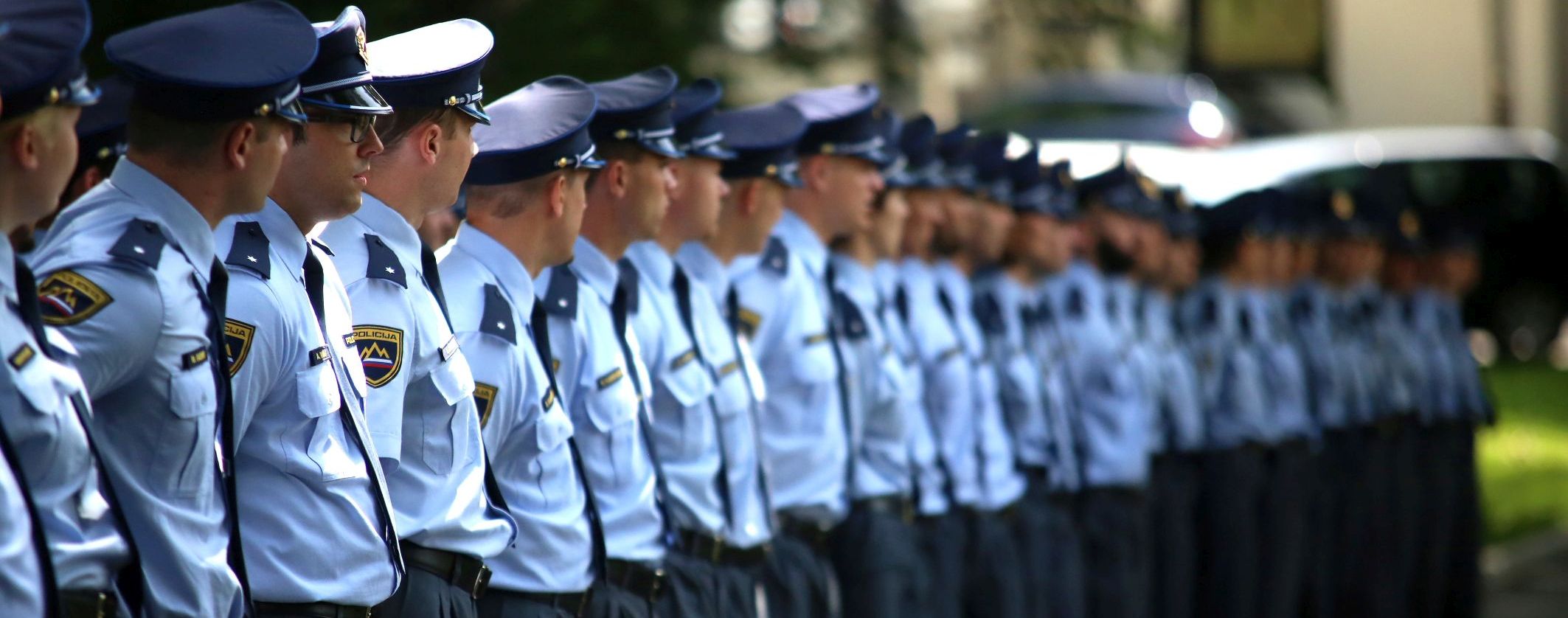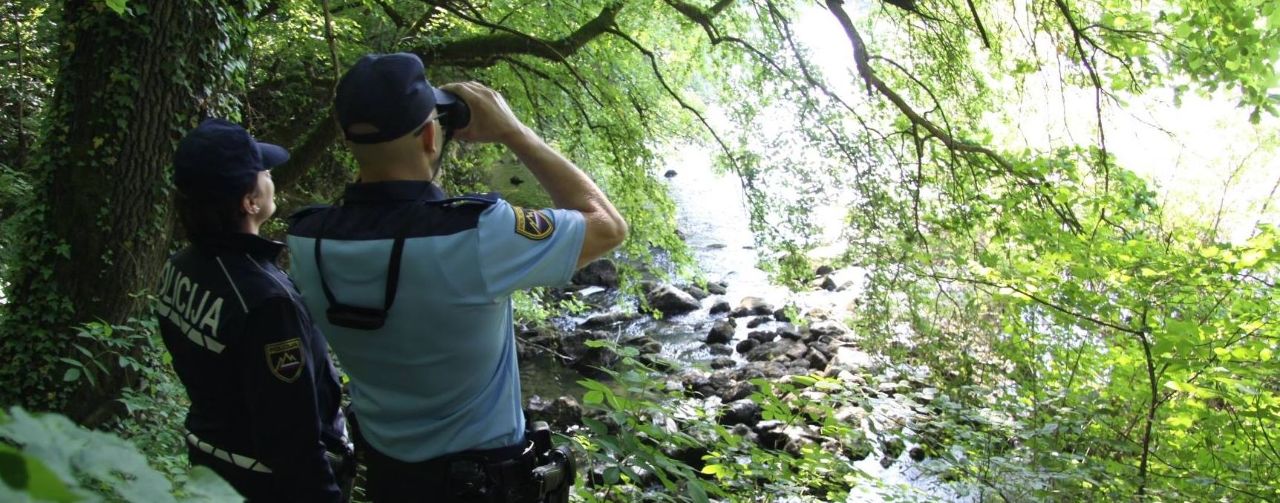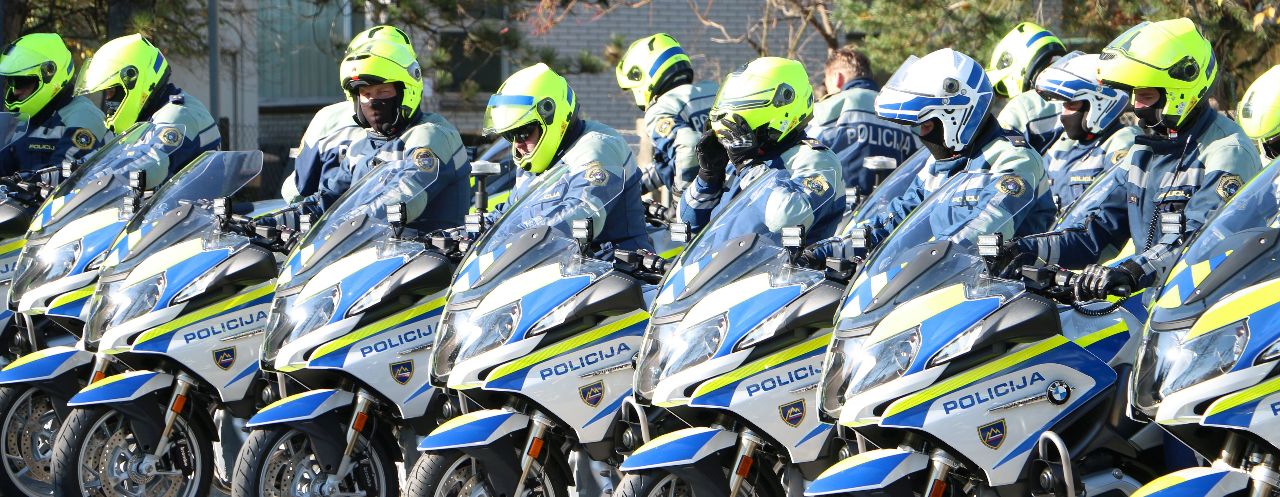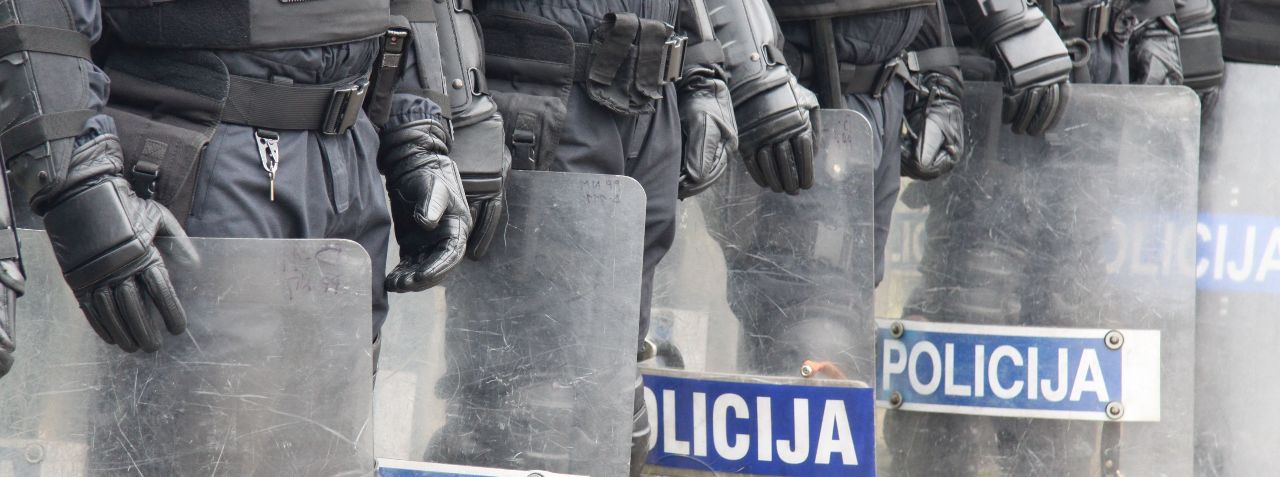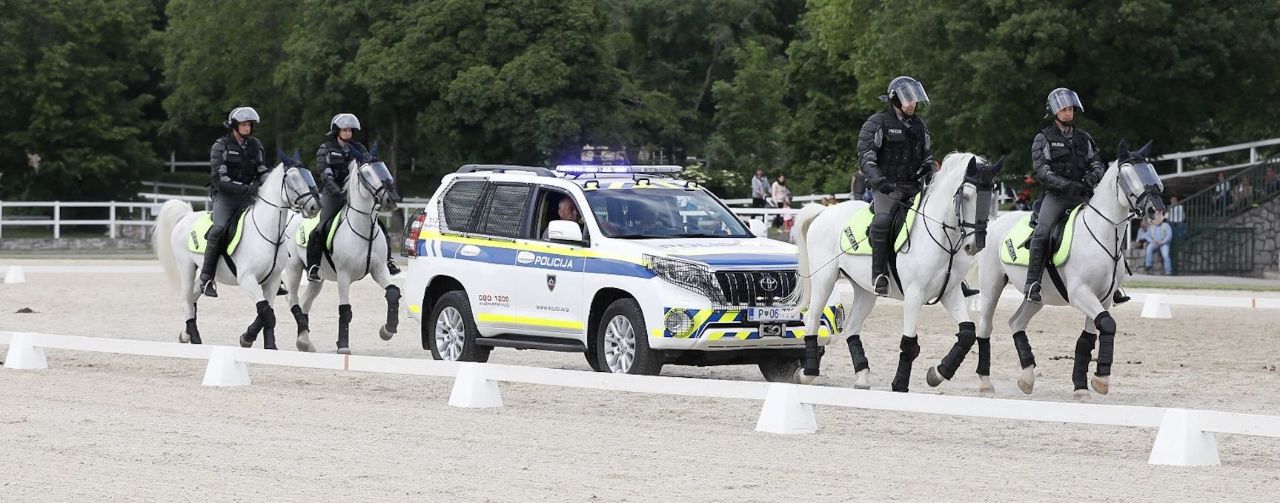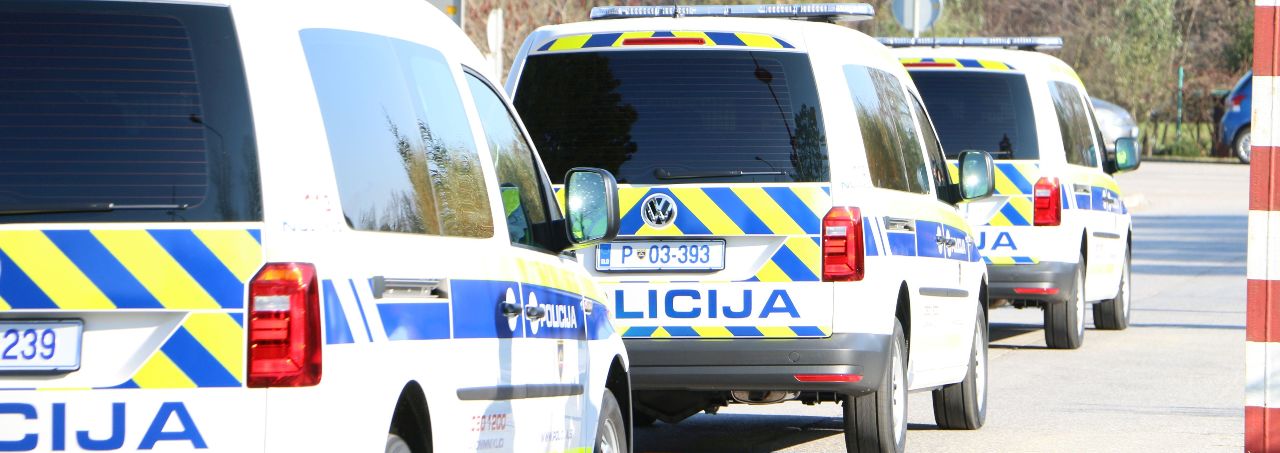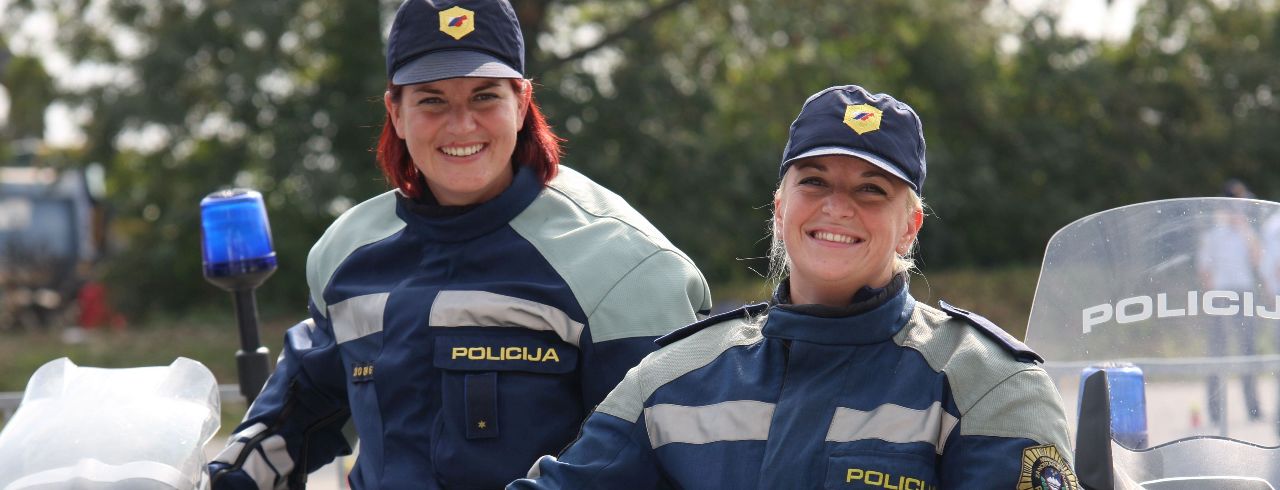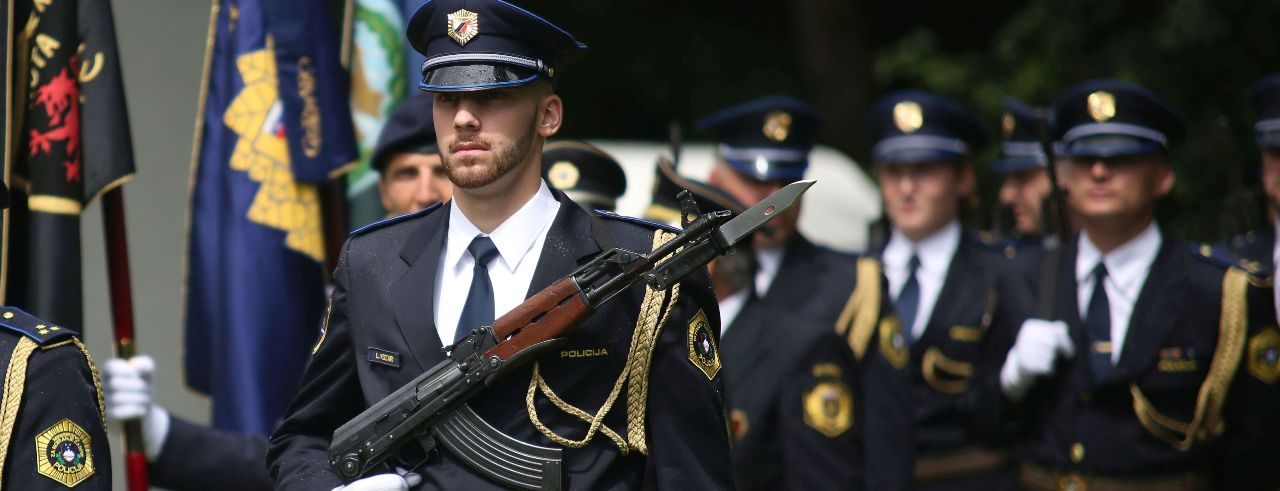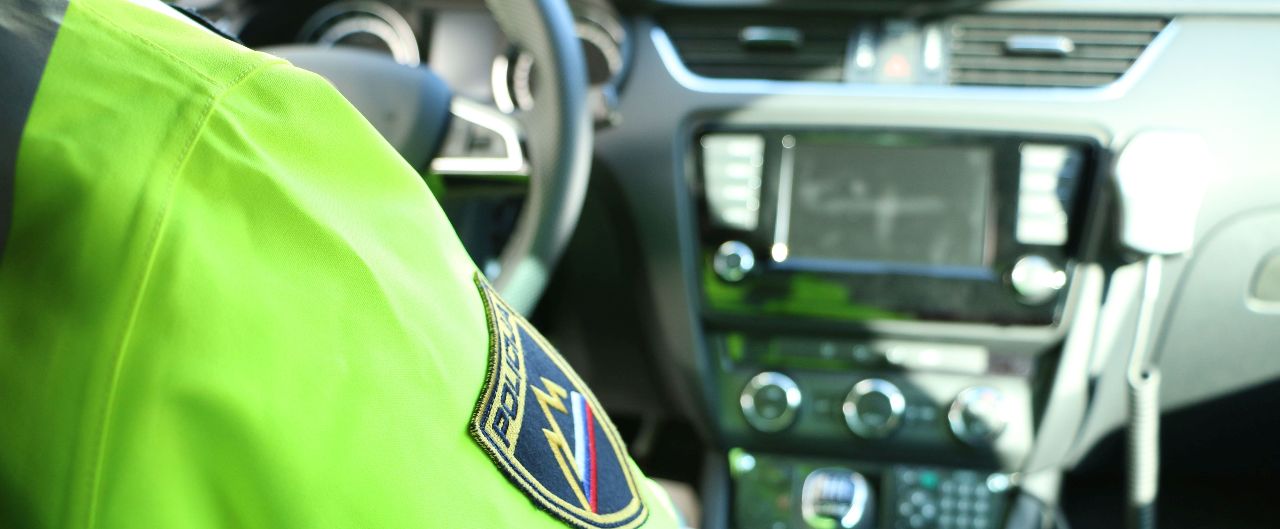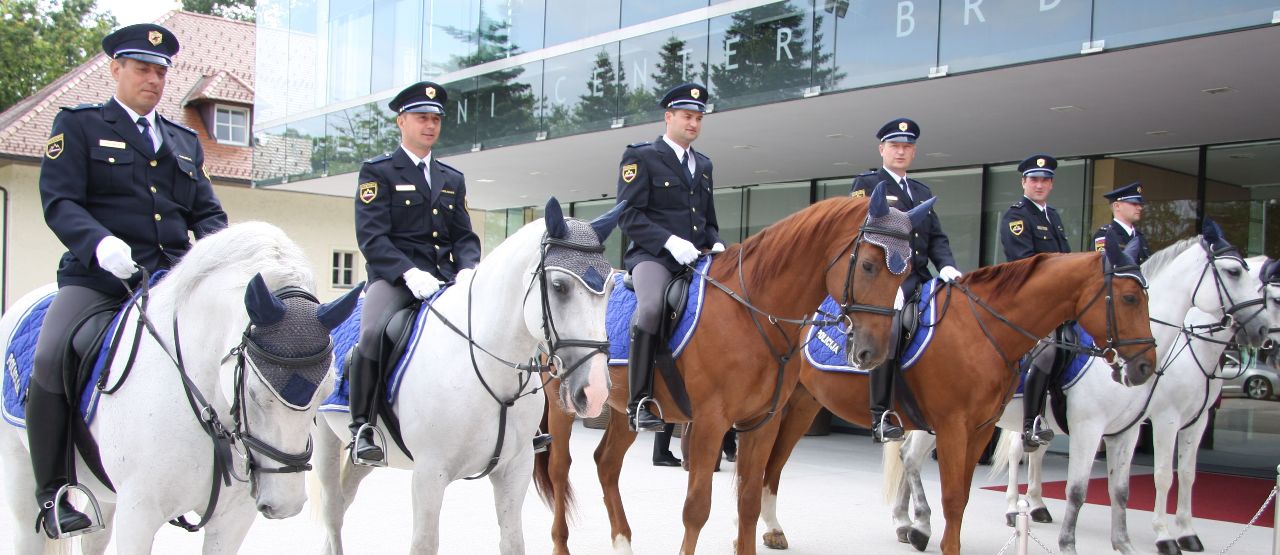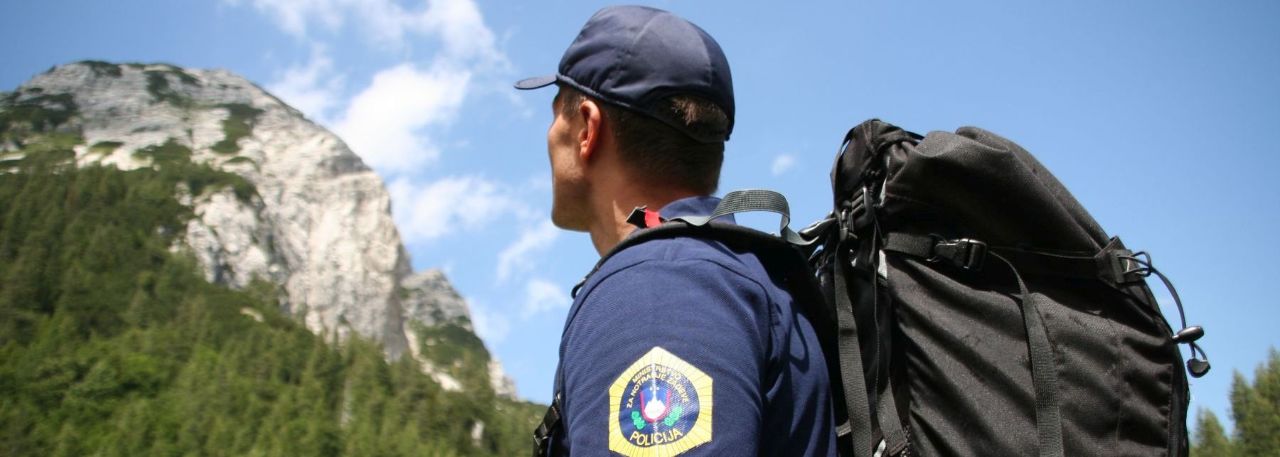News

EU Most Wanted website revamped with new fugitives added

Representatives of Slovenia attend the 93th INTERPOL General Assembly in Morocco

Slovenian criminal police take part in the international operation against child sexual exploitation Mozaik 2025
Solemn oath of the ninth generation of the Police College
Maribor Police Directorate celebrates an important milestone – 40th anniversary of the continuous operation of the mounted police
Foundation stone laid for the new police station in Ajdovščina
Write to us
If you have any questions, comments, acknowledgments or suggestions for the Slovenian police, please feel free to write to us. Our e-mail adress: gp.policija@policija.si
Anonymous telephone number 080 - 1200
080-1200 "Joining forces against crime" If you would like to assist police in the investigation and detection of criminal offences, if you know the whereabouts of an offender or objects that may serve as evidence of criminal offence, and if you wish to remain anonymous CALL THE ANONYMOUS POLICE TELEPHONE NUMBER 080-1200 The Operation and Communication Centre within Police Specialities Directorate also receives anonymous calls from citizens. Experience in police work has shown that victims and persons suffering damage do not report all criminal and violent incidents and witnesses are often not prepared to give an account of the incident to the Police, either at the scene of the incident, before a court or a misdemeanours judge. The most frequent reason for this so-called "dark field of crime" is fear of revenge by the perpetrator or his/her relatives and fear of lawyers or long court proceedings. Despite the fact that people, particularly in urban environments, are becoming increasingly reserved to events in their surroundings, this does not necessarily mean that they are not willing to report specific information on the facts and circumstances of a criminal offence or information on suspects, on the condition that they are not personally involved in other people's problems. So as to increase police cooperation with citizens, and thus also the effectiveness of such cooperation, the Operation and Communication Centre introduced a toll-free anonymous telephone number 080-1200 in April 1997 bearing the slogan "Joining forces against crime, we do not require your personal data and you will remain anonymous". The number is available to all those who believe they can provide the police with useful information but wish to remain anonymous. The anonymous tip number is open 24 hours a day. Calls are received by the Assistant Shift Manager, who then makes an assessment as to whether they are sufficiently important for police intervention, records them and notifies the competent criminal service of the contents. Related content Police Emergency Telephone Number 113 Activity of the Operations and Communications Centre
Police emergency telephone number 113
IF YOU HAVE BEEN INVOLVED IN, OR HAVE WITNESSED A TRAFFIC ACCIDENT,IF YOU HAVE BEEN A VICTIM OF OR WITNESSED A CRIMINAL OFFENCE,IF YOU BELIEVE YOUR PEACE HAS BEEN DISTURBED,OR IF YOU BELIEVE THAT THE POLICE CAN PROTECT YOUR SAFETY IN ANY OTHER WAY,CALL 113! Whenever citizens require police assistance, they can call the 113 emergency number. Emergency calls are received and recorded by the deputy shift manager of the operation and communication centre at the regional police directorate. Also when a citizen requests police assistance by calling the telephone number of the nearest police station, in person or by seeking the direct assistance of police officers at the location of an incident or offence, the operation and communication centre is immediately notified. When calling the police emergency telephone number 113 please state: WHAT has happened (traffic accident, criminal offence, fight, etc.), WHERE the incident happened (place, type of road, for example motorway, direction of driving, or the vicinity of distinguishable objects), WHEN it happened (Did you encounter the incident by chance or were you involved in it?) Whether there is anybody injured, the number of persons and vehicles involved, and Other information that could contribute to your safety and the safety of other people. If there are any difficulties in communicating due to lack of understanding of language, try to tell the basic data such as place and street, or find someone in your vicinity who understands your language and who will explain the incident at the police emergency telephone number 113. The police officer receiving a notification of an emergency incident must request as detailedtailed information as possible from the notifier so as to determine the priority level of the required intervention and the method of its organisation. The right to personal dignity and safety is one of the fundamental constitutional human rights, which is why POLICE OFFICERS ARE OBLIGED TO TAKE APPROPRIATE ACTION IN ALL CASES REGARDING THE LIFE, SAFETY OR PROPERTY OF PEOPLE AND THE RIGHTS OF PEOPLE TO PEACE AT WORK, LEISURE OR REST (Guidelines for the Enforcement of Police Interventions, Ljubljana, 1998) Anyone calling the Police using the 113 emergency number should describe the incident as accurately as possible, state the consequences the incident has had on people, the precise time and place of occurrence, possibilities for accessing the scene of emergency, the reason for the offence, the number of people who witnessed the incident and finally their personal data. Following the receipt of an emergency call, the shift manager assesses the priority of events requiring intervention dividing them into those needing immediate dispatch to the scene and those that can wait. Emergency calls are all calls connected to incidents: that pose a direct threat to lives, where violence has been used or upon receiving a call a real threat has been assessed, where a police officer has been attacked or requires help or actions for the committing of a criminal offence have been announced or that a criminal offence is already being committed and the perpetrator of the criminal offence could escape, in which a traffic accident has occurred involving serious bodily injury or a traffic accident which threatens the safety of other traffic participants and when the shift manager assessed that the incident requires immediate police intervention. Nevertheless, citizens do not only call the 113 emergency telephone number when they require police intervention. Residents also call the 113 number requesting general information (for example, road conditions and conditions at border crossings, which countries require an entry visa, and the like) or in provocation. The Police consider these "empty calls". The Police in this sense perform a preventive and service activity with regard to such calls. Foreign research has also shown that only 20% of calls regard true police activities, while the remaining 80% fall under so-called service activities. The situation in Slovenia in recent years reflects a similar picture. Response time of police forces The response time comprises the time from placing a call to 113 emergency number, which is received by an employee of the operation and communication centre of the regional police directorate, to the arrival of a police patrol, crime scene group or other competent service to the location of the emergency event, offence or incident. The speed of police action is also connected to the time required by a police patrol to arrive at the scene. Through its work, the operation and communication centre of the regional police directorate can decrease the amount of time between the receipt of an emergency call and the dispatch of a police patrol to the scene of the incident. Related content Anonymous telephone number 080 1200 Activity of the Operations and Communications Centre
Useful Information
Police Emergency Number 113 Anonymous phone number080 - 1200 Police stations Border crossings For foreign tourists Traffic safety Missing persons Wanted persons Stolen vehicles Traffic conditions(Traffic Information Centre)


